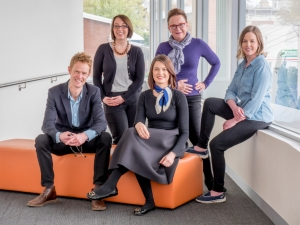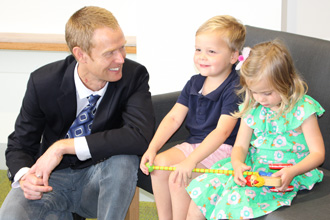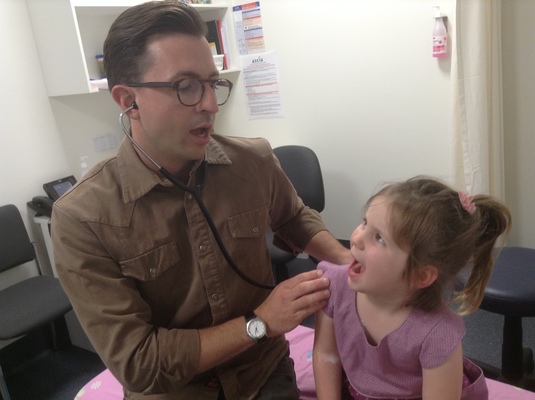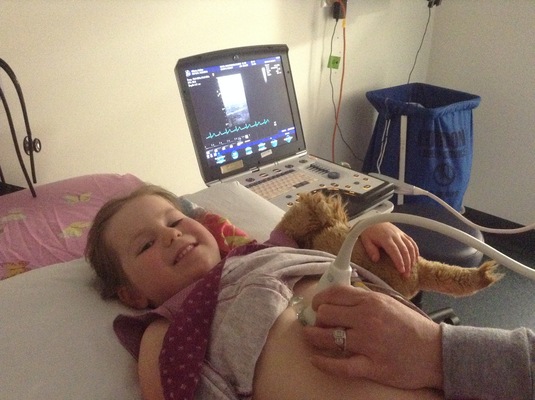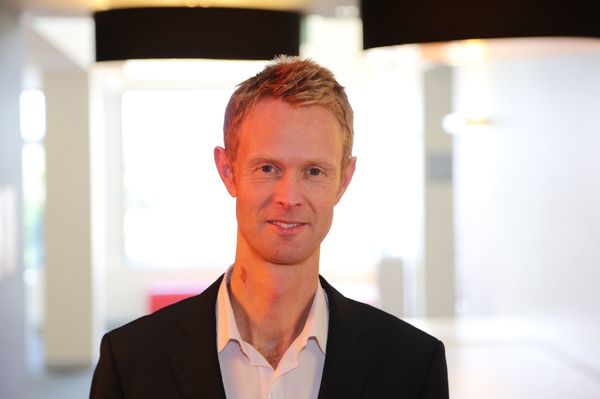By Luke Voogt
More than 1000 Geelong babies and children are helping local researchers break new scientific ground in the Barwon Infant Study.
Anna Shaw has been a part of the study since she was pregnant with her now four-year-old daughter Ada.
Ada has asthma and her mother hopes the study can reveal the cause of the condition.
This would allow her to remove triggers of her daughter’s asthma from her life, she says.
“Her quality of life would improve dramatically.”
Anna says it would be equally wonderful if researchers discovered factors in pregnancy which could cause the condition.
“We’re told so many things when we’re pregnant.
“But if they can come up with something specific which is causing asthma or allergies and pass it on to parents in the future that would be fantastic.”
After six years the study is beginning to map local infant health, says principal investigator Deakin Associate Professor Peter Vuillermin.
“I think we’re at a point where we are starting to discover some really important things.”
In the past year the study has released papers on everything from ADHD to how a mother’s mental health during pregnancy can affect a baby’s genes.
“It covers most things you could think of in the modern world,” Peter says.
In January the study published evidence that babies who develop food allergy have a hyper-responsive immune system at birth.
“In April we published a paper showing, for the first time, a link between factors that may influence a baby’s gut bacteria and early markers for cardiovascular risk,” Peter says.
The study has found links between a mother’s mental well-being during pregnancy and the ‘shape’ of the baby’s genes at birth.
It also found a link between women’s weight before pregnancy and their baby’s adiposity (fatness) birth.
“There is a really important health message in that,” Peter says.
“If you’re thinking about having a baby it’s really important time to attend to your own health.”
Researchers from Deakin University, Murdoch Children’s Research Institute and Barwon Health have been collecting questionnaire data and samples for the study since 2010.
Peter described the study as a combination of “people power” and “cutting-edge technology”.
“It’s unique in the depth of biological samples,” he says.
But the most exciting breakthroughs are yet to come, Peter says.
“We currently have a number of papers in review.
“These include an investigation of the difference in food allergy rates in Geelong and Melbourne and the factors that may explain the difference.”
The papers have identified a possible link between vitamin D and folate levels and the baby’s risk of allergy, Peter says.
And the study may be on the verge of making another important breakthrough with allergies, he says.
“We have recently received a huge amount of data regarding the bacteria present in the mother and baby’s poo samples. Early analyses are looking very exciting – watch this space.”
People in developed nations have less diversity of micro-organisms living in their gut than hunter-gatherer tribes on an “agrarian-type diet”, Peter says.
This may account for increasing allergy rates in the western world,” he says.
“There’s a lot of evidence that it has its origins in early life. We’ve co-evolved with these micro-organisms that live in our bodies.
“We’re trying to understand why the loss of those micro-organisms may be driving the increase in immune-related diseases.”


